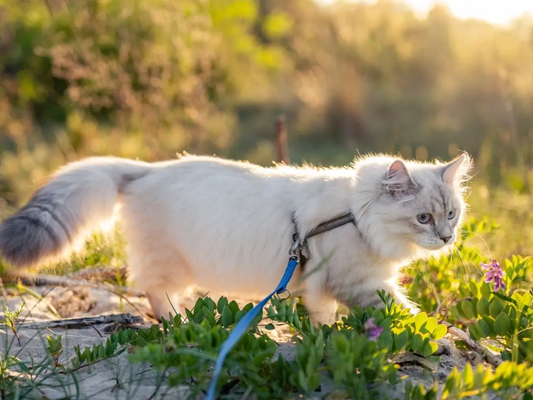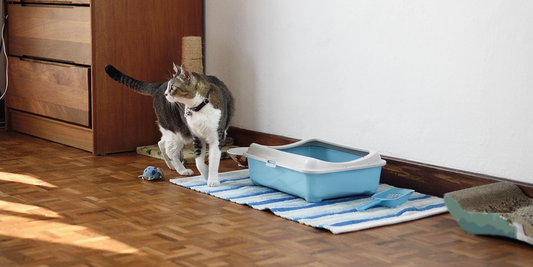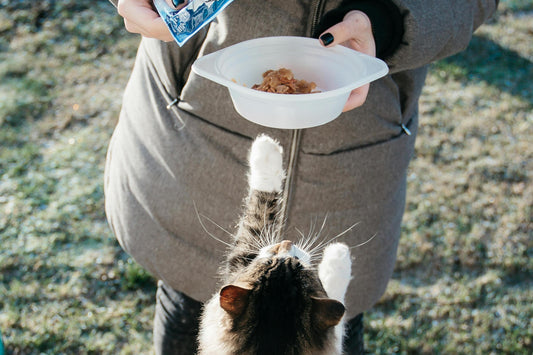Introduction:
Understanding our feline companions' behaviors can sometimes be puzzling. One common issue many cat owners face is finding their cat pooping outside the litter box. This article delves into the various reasons behind this behavior and offers practical solutions to address it effectively.
Why Is My Cat Pooping on the Floor? Reasons & How to Stop
Stress and Anxiety:
Cats are sensitive creatures, and stress or anxiety can manifest in various ways, including inappropriate elimination. Changes in their environment, such as moving to a new home or the introduction of a new pet, can trigger stress-induced behaviors like pooping on the floor. Understanding and minimizing sources of stress can help alleviate this issue.
Medical Issues:
Underlying medical conditions could also be the culprit behind your cat's behavior. Health problems such as urinary tract infections, digestive issues, or arthritis may cause discomfort or pain, leading your cat to avoid the litter box. Consulting with a veterinarian is crucial to rule out any medical concerns and provide appropriate treatment.
Litter Box Problems:
The litter box itself might be the problem. Cats are particular about their bathroom habits, and issues like a dirty litter box, inappropriate litter type, or inadequate box size can discourage them from using it. Ensuring a clean and suitable litter box environment is essential in encouraging proper elimination behavior.
Territory Marking:
Cats are territorial animals, and they may use elimination as a way to mark their territory, especially in multi-cat households. This behavior can occur if your cat feels threatened or insecure about its territory. Providing multiple litter boxes in different areas of the house and minimizing conflicts among cats can help reduce territorial marking.
Behavioral Issues:
Sometimes, pooping on the floor can be a behavioral issue stemming from boredom, lack of stimulation, or even a learned behavior. Engaging your cat in interactive play, providing environmental enrichment, and rewarding desired litter box habits can help modify this behavior positively.
Diet and Nutrition:
Dietary factors can also influence your cat's bathroom habits. Inappropriate diets or sudden changes in food can upset your cat's digestive system, leading to irregular bowel movements. Ensuring a balanced diet and gradual transitions between foods can promote digestive health and regular elimination.
Environmental Factors:
Environmental changes or disruptions in your cat's routine can trigger elimination problems. Loud noises, construction work, or changes in household dynamics can stress your cat and disrupt its normal routine. Minimizing disturbances and maintaining a consistent environment can help alleviate these issues.
Aging and Mobility Issues:
As cats age, they may experience mobility issues or cognitive decline, making it challenging for them to access the litter box. Providing easy access to litter boxes with low sides or ramps can accommodate senior cats' needs and prevent accidents.
Training and Reinforcement:
Positive reinforcement techniques can be effective in encouraging desired behaviors in cats. Rewarding your cat with treats or praise when it uses the litter box appropriately reinforces good habits. Consistency and patience are key when implementing training methods.
Consultation with a Veterinarian:
If your cat continues to exhibit inappropriate elimination despite addressing potential causes, consulting with a veterinarian is advisable. A thorough medical evaluation can help identify any underlying health issues or behavioral concerns that may require professional intervention.
FAQs
-
What are some signs that my cat might be stressed? Signs of stress in cats include hiding, excessive grooming, loss of appetite, aggression, and changes in litter box habits.
-
How can I make my cat feel more comfortable in its environment? Providing hiding spots, vertical spaces, interactive toys, and a consistent routine can help reduce stress and promote a sense of security for your cat.
-
Is it normal for cats to have accidents outside the litter box occasionally? While occasional accidents can happen, consistent or frequent elimination outside the litter box may indicate an underlying issue that requires attention.
-
Can changes in diet affect my cat's litter box habits? Yes, sudden changes in diet or feeding schedules can disrupt your cat's digestive system and lead to changes in elimination patterns.
-
Should I punish my cat for pooping outside the litter box? No, punishment can cause fear and stress in your cat, potentially exacerbating the problem. Instead, focus on identifying and addressing the underlying cause of the behavior.
-
When should I seek professional help for my cat's litter box issues? If your cat's litter box problems persist despite intervention, or if you notice any concerning symptoms such as blood in the stool or difficulty urinating, consult with a veterinarian promptly.
Conclusion:
Understanding why your cat is pooping on the floor is the first step towards resolving this behavior. By addressing potential causes such as stress, medical issues, or environmental factors, and implementing appropriate solutions, you can help your feline friend regain proper litter box habits and enjoy a happier, healthier life.








